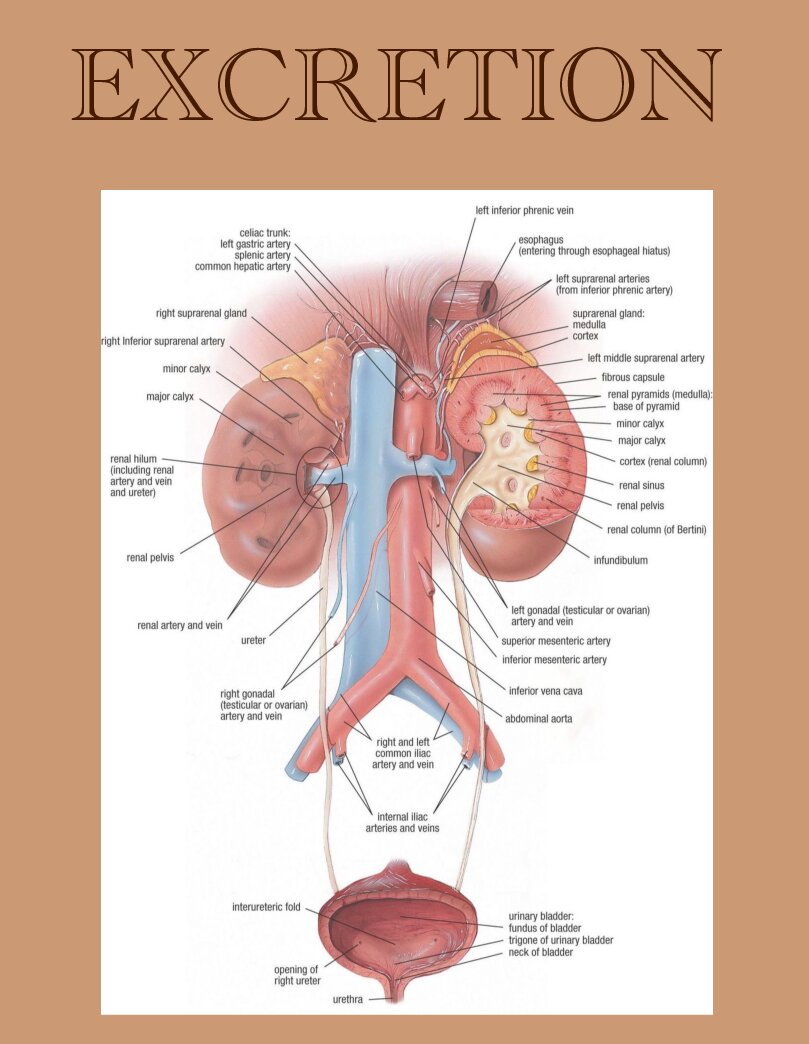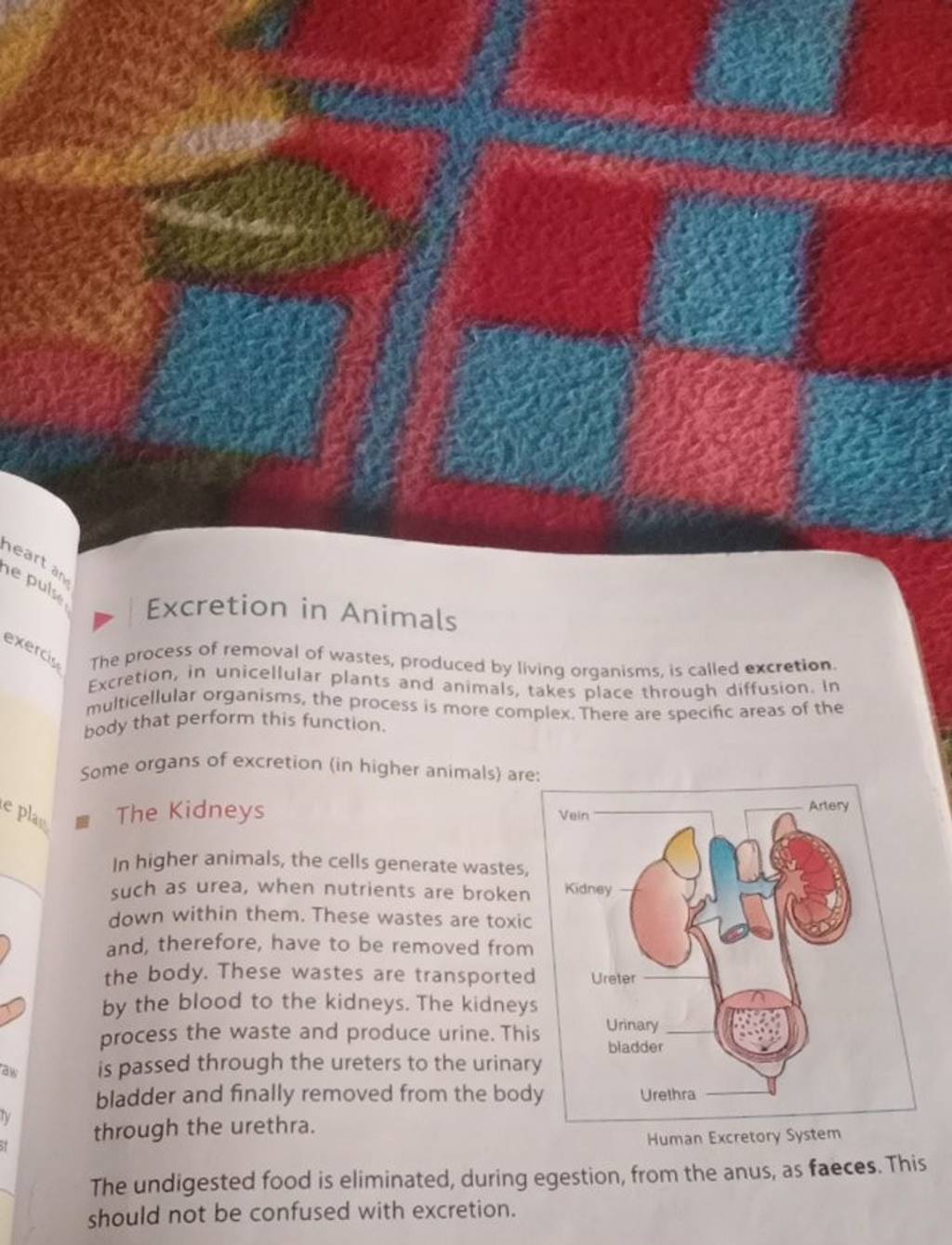Is excretion simply the body's way of getting rid of unwanted stuff? **Absolutely not; it's a carefully orchestrated, life-sustaining process crucial for the survival of every living being.**
The world around us is a hive of activity, a constant cycle of intake, processing, and output. For every organism, from the simplest single-celled creature to the most complex animal, this cycle is fundamental. Within the intricate machinery of life, the process of excretion plays a vital role. It’s far more than just waste disposal; it is a fundamental biological function, the key to maintaining internal equilibrium. Excretion allows organisms to maintain homeostasis, a stable internal environment, by ridding the body of metabolic waste products and toxins. These substances are often the byproducts of cellular processes, and if they were to accumulate, they would quickly poison the system.
The definition of excretion is remarkably consistent across scientific literature. It’s the elimination of metabolic waste. This contrasts sharply with secretion, where the substance is often intended for a specific task after leaving the cell. Excretion is distinct from other forms of elimination, such as the egestion of undigested food, which doesn't involve the removal of metabolic byproducts. The significance of excretion extends beyond simple waste removal; it is intimately connected to the intricate regulation of various physiological processes, including fluid balance, pH control, and the maintenance of blood pressure. The efficiency of an organism's excretory system is directly related to its ability to thrive in its environment.
Consider the different organisms. Unicellular organisms, like bacteria and amoebas, remove waste products through simple diffusion. These tiny cells have a large surface area to volume ratio, allowing waste to pass directly through the cell membrane into their surroundings. More complex animals, however, have evolved specialized organs dedicated to excretion. This specialized approach to excretion allows for more complex biochemical processes, from the creation of more complex organisms, to the ability to live in a wide range of environments.
In vertebrates, the lungs, kidneys, and skin are the primary organs responsible for excretion. The lungs, for example, eliminate carbon dioxide, a product of cellular respiration. The kidneys filter the blood, removing waste and excess water to produce urine. The skin, through sweat, eliminates water, salts, and small amounts of other waste products. In plants, excretion takes a different form, though the principle remains the same. Plants don’t have specialized excretory organs like animals do, but they eliminate waste through various mechanisms, including the shedding of leaves and the storage of waste products in vacuoles.
The human excretory system is a marvel of biological engineering. It includes the kidneys, ureters, urinary bladder, and urethra. The kidneys filter blood, removing waste products like urea, uric acid, and creatinine. This filtered waste, along with excess water and salts, forms urine, which travels through the ureters to the bladder for storage. When the bladder is full, the urine is expelled from the body through the urethra. Each component of the excretory system plays a crucial role in maintaining the body's internal environment.
The importance of understanding the concept of excretion cannot be overstated. It’s central to understanding biology at all levels, from cellular processes to the functioning of complex ecosystems. Without efficient excretion, organisms would quickly succumb to the toxic effects of their own waste products. Disruptions in the excretory process can lead to a wide range of health problems, highlighting the critical importance of this process for overall well-being. From a medical perspective, understanding excretion is paramount for diagnosing and treating conditions that affect the kidneys, lungs, and other organs involved. Furthermore, understanding excretion sheds light on the complex interactions between an organism and its environment. The process of waste removal is a critical factor in environmental health.
The study of excretion continues to evolve. Scientists are constantly discovering new aspects of this fundamental process. Through this ongoing research, they are gaining a deeper understanding of how life sustains itself.
To further enhance your understanding, here's a table summarizing key information about excretion:
| Aspect | Description |
|---|---|
| Definition | The elimination of metabolic waste products from an organism's body. |
| Purpose | To maintain homeostasis by removing toxic substances and regulating internal environment. |
| Types of Waste | Urea, uric acid, creatinine, carbon dioxide, excess salts, and water. |
| Organisms | Occurs in all living organisms, from unicellular organisms to complex animals and plants. |
| Excretory Organs (Vertebrates) | Lungs (carbon dioxide), kidneys (urine), skin (sweat). |
| Excretion in Plants | Shedding of leaves, storage in vacuoles, and other mechanisms. |
| Human Excretory System | Kidneys, ureters, urinary bladder, and urethra. |
| Importance | Essential for maintaining health, regulating internal environment, and the survival of organisms. |
Reference: Excretion - Wikipedia



